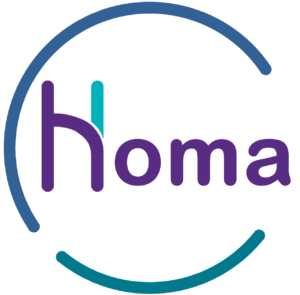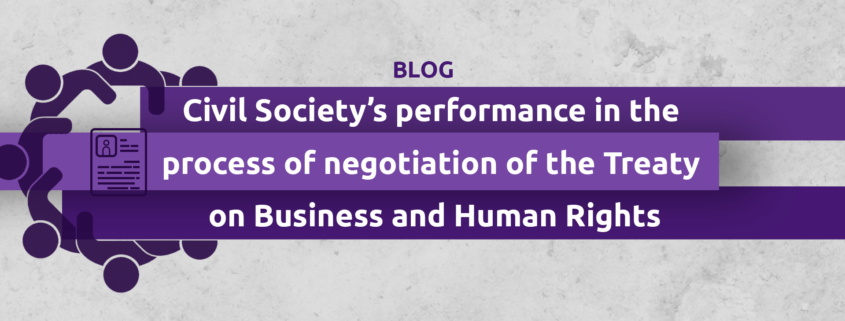Civil Society’s performance in the process of negotiation of the Treaty on Business and Human Rights
Civil Society’s performance in the process of negotiation of the Treaty on Business and Human Rights
By Renata Guarino, Translation by Davi Marcenes Cunha
Civil society activism toward an effective instrument to fight against human rights violations perpetrated by transnational corporations started gaining prominence in the 1990s, following the launch of the UN Global Compact. The Peoples Treaty consists of a response to the abuses committed by large corporations. Together, organisations from around the world formed the Global Campaign to Dismantle Corporate Power and Stop Impunity, also known as the Global Campaign, in which they articulated themselves to push for changes in the current scenario.
This articulation shows a redefinition of the role of civil society as a mobilizing force. The strength of the society, represented by the organisations, during the negotiation of the Treaty is amplified through joint work. It is not necessary for the State to enforce its demands, the population seeks its own forms of gaining prominence during the debates. And their participation highlight the point of view of those who are directly and indirectly affected by the violations of transnational corporations, and this happens because of their proximity to the social reality.
The Global Campaign
The Global Campaign to Dismantling Corporate Power and Stop Impunity was launched in 2012 at the Rio+20 People’s Summit after consultations with movements and organisations fighting against human rights violations by transnational corporations. Through the Global Campaign, the Peoples Treaty was assembled.
The Peoples Treaty is a political document that seeks the defense and empowerment of civil society, especially populations affected by crimes and human rights violations by transnational corporations. It expresses the demands of the Global Campaign for a document of binding rules for companies and an alternative economic system. Based on the Peoples Treaty, the Global Campaign proposed a text for the Treaty on Business and Human Rights at the third session of the OEIGWG (link Treaty negotiation process). You can access it in this link.
Key Points of the Treaty
The website of the Global Campaign brings key points that they consider to be essential for the creation of an ideal Treaty. They are:
- Scope of the Treaty: The objective of Resolution 26/9, which initiated the process, is the creation of an international legally binding instrument on transnational corporations and other business that are specially of transnational character. Local companies do not enter into this context, as they are already covered by the corresponding domestic law and could hinder the effectiveness of the treaty, since to cover different business structures the wording would have to be more comprehensive.
- The primacy of Human Rights: Human Rights should be a guide for the elaboration of the binding instrument. The Treaty must protect populations and communities affected or at risk of being affected. In addition, it should hold corporations and States that violate human rights accountable and establish legal obligations.
- Direct obligations for transnational corporations: The treaty must establish direct obligations for transnational corporations, holding them accountable for any violation of International Human Rights Law, International Environmental Law and International Labor Standards.
- Responsible solidarity: Transnational corporations should be responsible for the entire supply chain. The supply chain is formed by all the companies that contribute to the activities of transnational corporations, including the investors that finance the corporations. This is one of the key points in the accountability of large international conglomerates since the current configuration of the international division of labor allows a transnational corporation to have operations in dozens of different countries, contracts with hundreds of other small companies, and thousands of workers with no direct link to the company, even though they are essential for the production chain.
- International Court and other compliance institutions: along with the creation of the Treaty, an International Court is needed to collect complaints of violations. This court will be responsible for receiving complaints, investigating, adjudicate and executing decisions.
- Rights of affected people and communities: the affected communities and individuals, the human rights defenders and whistle blowers shall be protected. The Treaty needs to establish the right to redress for victims.
- Protection from corporate capture: The Treaty must contain concrete measures against the influence of corporations in the processes of rule-making between countries, such as in Trade and Investment Agreements, as well as in the processes of formulating public policies in countries.
Global Campaign and Draft 2
On August 27, 2020, the Global Campaign released a statement on the revision of Draft 2 of the Treaty, published on August 6, 2020. The document is the basis for the next negotiation session of an international legally binding instrument on transnational corporations in the field of human rights.
In its statement, the Global Campaign has shown concerns with the current moment of negotiations of the Treaty. According to the Campaign, Draft 2 follows the line of the previous one (Draft one): it is weak in fundamental aspects. The document includes all enterprises, without distinguishing transnational corporations, which is contrary to what is foreseen in Resolution 26/9. In addition, it does not recognize the direct obligations of transnational corporations, it does not mention the joint responsibility in the value chain, nor it mention the creation of an International Court. Draft 2 is a document with a generic text, “a draft treaty that has been strongly emptied of its transnational scope, that is, of its raison d’être” as is stated in the Global Campaign’s published text.
In view of this, the Global Campaign believes that the appropriate conditions for the negotiation of the Treaty have not been met for the sixth session that will take place from October 26 to 30, 2020. However, as the Session will take place, the Campaign will be present and active in the protection of Human Rights and against corporate impunity.
To learn more about the evolution of the discussions on the Treaty on Human Rights and Business, follow Homa on social medias. We are on facebook, twitter, instagram and linkedIn.




Leave a Reply
Want to join the discussion?Feel free to contribute!